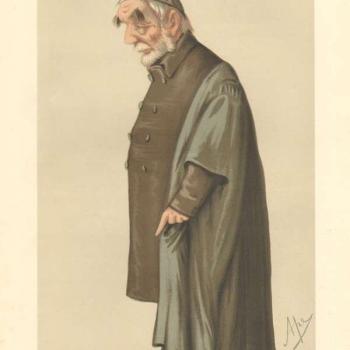Lectionary Reflections
Luke 19:28-40
March 24, 2013
I watched the movie Argo recently. I knew it had a positive ending, but I still felt anxious until I saw it happen onscreen. The reverse dynamic kicks in for me every Holy Week. Every Holy Week, I watch Good Friday approach, knowing Jesus' earthly life has a negative ending, but I am still filled with persistent hope that this year it will end differently. Every year I want a rewrite of the script.
Good stories, screenwriters tell us, have a compelling protagonist, a believable supporting cast, a series of vivid scenes, and plenty of dramatic tension. A good rewrite scrutinizes all four elements and makes improvements. So I'm reflecting this week on Luke's version of Jesus' entry into Jerusalem, an event we find recorded in all four gospels with variations (Mt 21:1-9; Mk 11:1-10, Lk 19:28-40 and Jn 12:12-15). Luke's version has a compelling protagonist, a believable supporting cast, a vivid central scene, and plenty of dramatic tension. I just can't stand the ending.
Necessary Element 1: A Compelling Protagonist
Jesus the Messiah Who Comes to Lay Claim to His City
The beating heart of the story is the moving connection between Jesus riding into Jerusalem on a colt and Zechariah's prophesy that a future king would come into Jerusalem in humility, riding on a colt, the foal of an ass. (Zech 9:9) Rabbinic writings were full of this allusion. He is a Messiah without pomp. He is a king laying claim to his city. Luke specifies that Jesus is hailed as a king (as does John 12:13) in place of the traditional messianic title the "coming one" we hear in Matthew and Mark. This protagonist is perfect. I just want to change the plot.
Jesus' Uncanny Foreknowledge
In all three synoptic gospels, Jesus sends two of his disciples into Jerusalem to find a colt for him to ride into Jerusalem on. Jesus knows ahead of time where the colt will be and what the response of the owner will be to being told, "The Lord needs it." Luke shares with the other evangelists a portrait of Jesus as a true prophet whose prophecies are fulfilled and who has access to the secret knowledge of human hearts (Lk 7:29f; Jn 1:47f, 4:18f) (Ellis 225). While retaining Jesus' ability at discernment, I want to change what he discerns in human hearts and in future events. The protagonist is perfect. I just want to change the plot.
Necessary Element 2: A Believable Supporting Cast
Disciples Who Honor Jesus
In Luke the crowd consists of "the multitude of his disciples." By contrast the other versions mention a mixed crowed. In Luke the disciples throw their cloaks on the animal as a makeshift saddle, and they "set Jesus upon it" as a sign of honor due a king (Lk 19: 35). Mark and Matthew simply say that Jesus sat on the cloaks. In Matthew and Mark, the crowds shout out hosannas and acclamations: "Blessed is the one who comes in the name of the Lord." This is from Psalm 118: 26, which could have been used as a greeting to pilgrims or to the king as he approached the temple to worship God.
Disciples Who "Get" What Jesus Is Trying to Convey
In Luke 19:38, "the whole multitude of the disciples" say, "Blessed is the king who comes in the name of the Lord! Peace in heaven, and glory in the highest heaven!" In Luke the disciples seem to get who Jesus is and what he is intending by the symbolic parade. This is in contrast to John's version where they only catch on later (Jn 12: 16).
Plenty of Dramatic Tension
Luke Shows Us How Far We Are from Peace on Earth
"Peace in heaven and glory in the highest heaven!" the disciples shout to Jesus riding by on the colt. Luke adds "peace" to the praises recorded in the other three gospels, in a reference back to the angelic announcement of Luke 2:14, where the angels prophecy peace on earth as the effect of the Messiah's birth. Luke 19:38 reminds us that, while that peace is present and fashioned in heaven (Rev 12:10; 19:1), it is not yet present in Jerusalem (Marshall 715-6). Jerusalem has rejected the Messiah's peace, and now it will only be realized in the time to come. The kingdom is not yet appearing because of the city's rejection, but the king is at hand (Lk 19:11).
Only in Luke 19:39 do we hear the Pharisees chide Jesus for his disciples' unruly demonstration. They express the sentiments of Jerusalem toward Jesus: "Order your disciples to stop."
Only in Luke do we hear Jesus' eloquent reply, "If these were silent, the stones would shout out!" Is this a reference to Habakkuk 2:11, where the crying stones refer to the judgment of Israel? Does Jesus mean the stones would cry out against the disciples who sin by keeping silent? Does he mean the stones would cry out against the people who will reject and silence him? Does he mean that if the disciples keep silent, the stones will be forced to proclaim the mighty acts of God instead of them? Does he mean that it is no more possible for disciples to keep silent than it is for stones to speak? I can't fault the scene for lacking dramatic tension. I just hate the way it is resolved.





